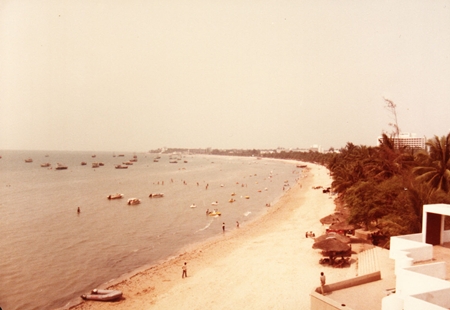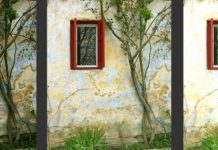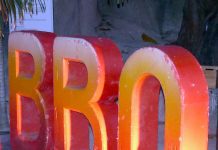Ever thought about documenting your neighborhood? It is considered part of progress as old buildings are knocked down to make way for another expressway, even though some may not agree. However, no matter which way your opinion slants, you do not have to wear a colored T-shirt, and the subject ‘progress’ makes for a great photo project.
The great thing about this project is that not only does it make you ‘work’ to produce a particular image, but the final images are eminently marketable. Interested? You could even make money out of this!

All you have to do with this project is to show the progress that has occurred in any area – particularly the region that you live in – For example, Bangkok, Chiang Mai or Pattaya! The concept is simple – contrast a “now” shot with what was there before. Sounds too easy? Well, it is not quite that easy! There are a couple of snags.
Probably one of the hardest aspects is getting the “before” or “then” shots in the first place. This will take some scrounging around, particularly in this region of the world, where not much stock was placed upon the particular moment in time. Buddhism tells you that all of life is change – so why get excited about recording the moment.
However, one of the greatest sources of the “then” images are postcards – particularly tourist market postcards. These were generally of reasonable photographic quality and also depicted the subject from a good angle.
So where are they? This is where you begin asking all the Thai people you know if they have any old photographs or postcards. After that, look in second hand shops, the dusty back corners of old Chinese chemist shops, funny old stores in Naklua – anywhere. But you do have to get these images first. Remember that you can always have photographs copied these days and you do not need the negatives. So all you have to do is borrow, if you cannot beg or steal! Do not worry about image quality, by the way, because no one expects old photographs to be pristine, in fact a little bit of fading and staining looks good in the final result, particularly the sepia tints.
Next part of the project is to find the original area that was photographed and work out from where the shot was taken. The concept is to get as close as possible to the original, so that the difference between the “then” and “now” is just the progress. This does mean looking critically at the original and working out if it was taken by a wide angle lens or whatever. If the shot is more than 50 years old, it was probably taken with a “normal” 50 mm lens, so try that first and look critically through your own viewfinder, while looking at the original as the reference.
Of course, some will be easy, like Pattaya Bay taken from the Naval Lookout at the top of Pratamnak Hill. Others, like the Nipa Lodge will be harder – just what angle did they take it from? It is also good to try and duplicate the time of day. Late afternoon or morning? Look at the shadows and you can work it out!
Now having done all your homework, go out and re-take all those shots from yesteryear. Again, be very critical with yourself. You do want to be able to see that this is a re-take of the original. Near enough is not good enough. Some pictures may be too confusing if there are no landmarks and you will have to reject some of them, unfortunately, but you will score some gold!
These new ones are worth having printed as at least 10″x8″ and mounted side by side with the faded originals. This is what makes them so interesting (and so saleable)! You also have the choice of leaving the originals as small prints beside the new enlargement, or blowing the old ones up to 10″x8″ as well, which is what I recommend. Believe me, these will sell! Everyone wants to show “life as it was” – it’s up to you to do it first!




